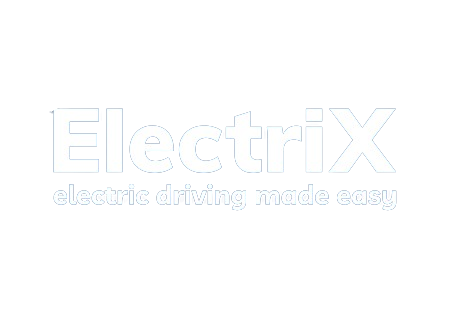A BUDGET FOR A HIGH WAGE, HIGH GROWTH ECONOMY – OR A DELUSION?
As the Chancellor Jeremy Hunt stood to announce what is possibly the last Budget prior to a General Election the arguments began in Parliament.
The Deputy Speaker who presided over the Chancellor’s statement was kept very busy with the amount of heckling resounding round and through the Chamber.
The Chancellor Jeremy Hunt said: “We’ve faced financial challenges, pandemic and war – growth has been higher than every large European economy, unemployment has halved and ‘absolute’ poverty has gone down.
“Because of the progress we’ve made, we can now help families with permanent cuts in taxation but also because Conservatives know lower taxes mean higher growth.
“If we want that growth to lead to higher wages and higher living standards…it cannot come from unlimited migration, we need to be a high wage and high skill economy.”
There are some hard truths though – whatever your political colours. Our tax burden is higher than it’s been in 70 years mainly because of ‘fiscal drag’ which relates to income tax being paid on the salaries of those who are employed or self employed.
In the past that threshold would naturally change each year alongside inflation but it has been frozen. This means more people are dragged into income tax or higher rates of income tax as their salary levels increase.
The current government brought this in during Autumn statement 2022 and this is going to be kept in place until the end of the tax year 2027 to 2028 – unless something changes such as a change in policy by a new government.
There is also the fact that we have experienced a ‘technical’ recession (whatever that means) as there have been two consecutive quarters of contraction of the economy in 2023 – we’ve yet to see where we are in this current quarter.
The Shadow Leader Sir Keir Starmer said he supported cuts to National Insurance but that was about it. He highlighted a promise by the Government that in 2024 income tax would be reduced – a promise now ‘in tatters’.
“Food prices are 25 per cent higher than two years go, rents are up by ten per cent, they made working people pay,” Sir Keir said.
“That record is how the British people will judge these cuts. They recognise a Tory con when they see it. People have been living through this nonsense for 14 years they know the income tax threshold has been frozen and a stealth tax is coming in their upcoming council tax bills.”
Yet what do business owners around the UK think?
Liz Hutchings, founder of Total Guide to, said:
“The National Insurance cut will help the staff make savings as well as the business which means we can reinvest in further growth and the support for working parents with 30 hours’ free childcare for parents of under 5s will be fantastic but still a little way off yet and it's too little too late for many including myself.
“Being a digital business, I was encouraged to hear the emphasis on making the UK the 'new Silicon Valley' and the support and investments in digital, tech and AI start-ups and businesses is encouraging.
“The increase in the VAT threshold will help a lot of micro businesses invest in growth instead of worrying about paying VAT.
“I was hugely disappointed not to hear much help for the leisure and hospitality industries, with the cost of living and the rise in national minimum wage, this sector is still in dire need of help and it's been very sad to see many businesses in this sector close down this year.”
Former accountant Chris Maslin, who now runs Go EO and is a specialist in employee ownership trusts, said:
“Most headlines will be around the 2% National Insurance cut. Whilst this will benefit your average worker, the impact is negated by ‘fiscal drag"’ Inflation has been around 10% for the last year or two, many salaries increasing accordingly, yet thresholds at which income tax rates change have not increased in line. This pushes more workers into higher rate tax bands.
“I do however see the NIC cut as a good move. NICs are just income tax by another name so it makes sense to phase them out completely, with income tax increased as required. This would make things simpler to understand and calculate.
“Another area of interest to middle earners is the High Income Child Benefit Charge – where child benefit has to be paid back in part or in full depending on how much someone earns. It's become a real pain for many! Few people are aware of it, so don't pay it, then years later get taken to court.
“The administrative costs are very high relative to the sums raised. Sadly I don't see the tweaks doing anything to solve the problem.
“There was some expectation of capital gains tax rates being increased. Typically only wealthy people suffer CGT, whereas virtually everyone suffers income tax. So questions have been raised over the justification of CGT rates being roughly half income tax rates.
“The Chancellor surprised us all by reducing CGT on residential property, for higher rate taxpayers, from 28% to 24%. This sits alongside the elimination of "furnished holiday let" rules, which gave additional tax reliefs to people owning second homes let out to holiday makers for short periods. These two changes combined may encourage those with holiday homes that aren't used much to sell, freeing up those properties for local families.
“…and ‘British ISA’? Groan! A new, restricted investment pot, to only be invested in UK companies. I can't see any sensible economic justification for this, just more confusion and complication. I can only imagine this was brought in for political reasons, an attempt to retain ‘patriotic’ voters tempted to switch to Reform UK.”
Anton Lane is the founder of Bristol-based company Edge Tax. He said:
“Raising the threshold for VAT registration will likely be received positively by small businesses. This is because, beyond the financial implications of the tax, the administrative workload disproportionately affects smaller businesses, which often have fewer resources to manage it.
“The non-dom announcement is politically remarkable. Downing Street previously either defended the non-domiciled tax status or attempted to avoid discussing it.
“Now, it's set to be eliminated, albeit with a replacement system that retains certain advantages. The primary goal here is to counteract Labour's strategy - this was among the few fiscal policies explicitly proposed by Sir Keir Starmer and Rachel Reeves. And let's not forget, an election is on the horizon. What will this mean for ‘Non-Doms’ who have already been in the UK for 5 years? This will come into force though in April 2025.
“The reduction of 2% in the National Insurance Contributions (NIC) for both employed and self-employed individuals met expectations. This action, aimed at those who are working, presents a more cost-effective option for the Chancellor compared to reducing income tax. It also emphasises the Budget's emphasis on employment. They increased the NIC to account for the health and social care levy and since then they have been reducing it so where does this leave the health and social care levy?
“Another modest tax adjustment that resonates with apparent public concern involves apprehensions about how the swift expansion of the ‘Airbnb’ market might be undermining communities heavily reliant on holiday-goers. Furnished holiday lettings were subject to tax benefits which are now going to scrapped next year.
“Hunt has also abolished multiple dwellings relief.... this will not sit well with the buy-to-let market which had lobbied for more support. This will take effect from June but may still be claimed where contracts are exchanged on or before April 6.”
Julianne Ponan MBE is the CEO of Creative Nature whose products are sold nationwide and overseas. The HQ is in Surrey.
She said:
“Lowering the national insurance contribution rate from 10% to 8% of pay from April reduces the financial burden on small businesses, allowing SMEs in particular to allocate albeit small resources towards growth, innovation, and employee development in perks/ training/ retaining talent. Employees will see this benefit immediately too.
“Allowing full expensing to apply to leased assets enables small businesses to invest in essential items like factory machinery and IT equipment without worrying about significant tax burdens. This does incentivise small businesses to upgrade their infrastructure leading to improved streamlining, productivity, and competitiveness in the market. We are looking at ways to ensure our product is competitive for consumers so will be purchasing new machinery this year to grow and streamline the process.
“The introduction of the ‘British ISA’ is great for employees with the funds and even directors to be able to invest more in UK assets.
“The landmark Public Sector Productivity Plan may be a stretch to achieve but could mean small businesses may experience smoother interactions with government agencies, leading to reduced administrative burden and quicker decision-making processes.
“I do believe a more productive public sector translates to better services and infrastructure, creating hopefully an easier environment for small businesses to thrive.
“This increase is not offering a lot. All this is going to do is give businesses an additional £5,000, which isn't much when looking at all the increased costs on businesses. A better option would have been to increase this further, to say £100k, with a caveat that saved VAT is reinvested back into the growth of the business.
“That would encourage micro businesses to take the next step into a small business and that growth would mean new staff being hired, more money being spent and a greater boost to the economy.”
Janet Shreeve of Shreeve Care Services, is a specialist in social care, supporting both care companies to navigate the social care system – and people trying to get the right care for loved ones. She said the Budget was a disgrace in that there was no mention or clear support for the social care sector.
“There was no further help for social care with all of the extra funding going to the NHS. Care providers are either getting a small increase to local authority rates or nothing at all. Social care is on its knees.”
Dr Carol Sargent is an expert in helping the travel and tourism sector become dementia friendly and supportive. Based in Loughborough, she too was disappointed that social care did not feature in the Budget.
"There was no mention of support for social care and for the families who have to pay for it. In my view they should remove VAT charges for day centres and other care provision. There was also no mention at all of how to free up beds in the NHS, just a focus on how to reduce the time spent on paperwork.
"Equally there was no mention of how to support people leaving work to look after their parents or what we are doing to deal with our aging population.
"While it's great that the NHS will be less dependent on paper, but they need services to refer people to - to be able to reduce bed-blocking and the burden of caring for people who cannot find suitable care in the community."
Another businesswoman who was not impressed was Kate Usher of Menopause In Business. Kate, who lives in London, works with companies and organisations who wish to improve retention of experienced women in their teams supporting them through the phases of menopause.
“Women especially those on low incomes have been negatively impacted both in the tax they pay, the cost of bills and increased childcare costs while not getting support in employment rights or cost effective, quality places to live,” Kate says.
“Due to tax thresholds being frozen those who earn less than £25K will be worse off even with a 2p reduction in national insurance. More women than men work in part time, low paid work to incorporate caring duties. In addition to this many step back from their careers during menopause to manage their symptoms, further impacting the financial cost of this choice.
“Increases in council tax will overshadow any minor changes in National Insurance. More women than ever are sole or primary earners in their households. The pressure of household bills is pushing many to burn out and again taking them out of their careers.
“The removal of tax breaks for furnished holiday lets carries the hope that this will return housing stock to local communities which have been devastated by growth in this area, pushing up prices and removing local infrastructure. However, there was no announcement to create truly affordable housing for families who are priced out of both the rental and ownership markets.
“There were no announcements on employment rights, critical for the many women in low paid work.
“The increase in the threshold for VAT registration to £90,000 will be welcome to the many women who have left employment due to caring responsibilities, menopause symptoms and general malaise over non gender equitable work environments.
“While childcare investment has been guaranteed, the reality is that many nurseries feel that the funds they receive are insufficient. This is exacerbated by a lack of people to fill vacant positions and a block on immigration. The impact of this is that many women are unable to return to work, while others take second jobs in an attempt to pay for the cost of childcare.
“The investment in life sciences is welcomed however menopause was not listed as a priority. This is unsurprising as it currently accounts for a tiny percentage of investment even though every woman, 51% of the population will experience it. The government released figures recently stating that menopause costs the economy £1.88bn in lost productivity.”
Financial adviser Dave Southby of Dave Southby Financial Planning, works with clients across the Swindon and Wiltshire areas.
He said:
"The Chancellor made a point to highlight that inflation should be below the Bank of England’s target annual inflation rate of 2%. This is very promising for the overall economy, with the OBR predicting the UK economy to increase by 0.8% this year and 2.9% next year.
"These announcements will only put more pressure on the Bank of England to start easing their monetary policy and reduce interest rates. Any reduction in interest rates will be beneficial to people with borrowing but will have a negative impact on saving rates.
"I welcome the decision to further reduce National Insurance rates for both employed and self-employed people. I did expect them to review the Personal Allowance threshold, however the government obviously voted to reduce National Insurance rates instead.
"Another welcome announcement was the increase in the VAT threshold. I know this increase doesn’t seem significant, but it will help many small businesses.
"I’m interested to understand more about the government's plans to revise the Child Benefit system. On the surface their initial increase to the Child Benefit higher earnings threshold from £50,000 to £60,000 will mean thousands of families will be better off however for me there are question marks around the future plans, particularly the implementation of the ‘household earnings threshold’. I think the principle of it is great, but it will be interesting to see how it is facilitated and what the threshold will be.
"The introduction of the British ISA! A scheme designed to encourage investment into British businesses with an additional £5,000 allowance above the usual £20,000 annual ISA allowance. I think this is a fantastic incentive to boost British focus investments and gives people the opportunity to invest more in ISAs each year.
Some highlights for households:
- Two per cent reduction in National Insurance payments for the employed and self-employed.
- Child benefit system to be changed to a household, means-tested system to reduce unfairness from April 2026. Immediately the threshold at which child benefit is reduced lifted to £60,000.
- Non-dom tax status is to be abolished which affects around 37,000 people a year – where people live and earn here but pay the majority of their taxes in a lower taxation country.
- One million households on Universal Credit take out loans for emergencies, which need to be repaid in a year – this has been increased to two years. Debt relief orders cost families in debt £90 to action. That fee will be abolished.
- Household support fund for poor families was due to end soon as it was a temporary measure but will be extended for six months.
- Alcohol duty to be frozen until February 2025.
- A British ISA will be created – where money will go into UK innovative businesses – and consumers will be able to invest £25,000 a year in this type of ISA.
- Increase on air passenger duty, taxes to be introduced on vape products and tax relief for holiday lets scrapped.
- Fuel duty to be maintained and frozen for another year, saving the average car driver saves £50 a year.
Business highlights:
- VAT threshold for businesses will rise from £85,000 to £90,000.
- Freezing alcohol duty to benefit 38,000 pubs and the business rate discount will continue.
- Money for those areas which need to level up – none in the South West though South Gloucestershire was mentioned in passing.
- Allowing pension funds to invest in innovative and growing sectors eg. Tech start up companies, AI and those industries.
- Film and TV businesses, particularly those with studio space will see the tax credit rate rise by five per cent. Eligible film studios which now get 40 per cent relief on gross business rates until 2034 – this will become permanent. Suggestion this will apply to theatres and other venues.
- Life Sciences will be supported in terms of research by medical charities around cancer, dementia and epilepsy and measures about AstraZeneca creating a vaccine hub near Liverpool.
- Windfall tax on energy companies will be extended.
- Tax benefits for furnished holiday letting to be scrapped.


















